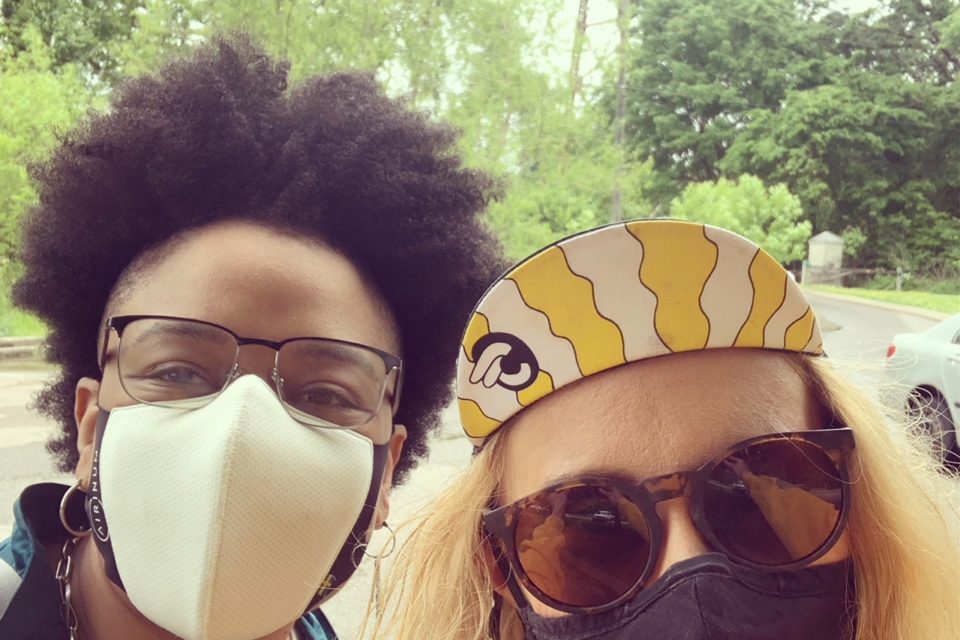WNXP has been regularly spinning the new version of Amythyst Kiah’s song “Black Myself,” a historically knowledgeable testament to Black humanity initially written and recorded with Our Native Daughters, then reimagined for her solo album Wary + Strange, out today, as stoutly delivered, blues-steeped alternative rock.
The transformed track is just a taste of how arresting it can be when Kiah refracts her feel for sturdy forms through her surreal visions.
A couple of months ago, I strolled around Shelby Park with the East Tennessee singer, songwriter and guitarist, interviewing her for a New York Times profile. In roughly 1,300 words, I mapped her journey from her angsty, youthful introversion and self-guided study of Tori Amos to her collegiate study of old-time music and piedmont blues as a budding performer, uncomfortable with self-disclosure, all the way up to the robust, fully realized voice she’s become, standing with purpose at her intersection of millennial, Black, queer, suburban, Appalachian identities. (I also rhapsodized about Wary + Strange on the latest edition of NPR Music’s All Songs Considered podcast New Music Friday.)
Here are a few insights that didn’t make it into the piece:
1) The high school summer that Kiah worked at Hot Topic, haven of mall Goths in suburbs everywhere, she couldn’t bring herself to interact with customers quite as enthusiastically as managers required, and also spent most of her paychecks on gear sold at the store.
2) Even though she got serious about old-time music at East Tennessee State, she didn’t begin her collegiate study of music with the goal of preparing for a career in it. It was much more of an exploratory affair. She told me, “I tried to use college as a soul-searching thing, because when my mom passed, I just spent years trying to figure out, ‘Who am I and what’s my identity and what should I believe in?'” She even worked her way through two and a half years of grad school, first focusing on Appalachian studies, then gender studies, before she went all-in on music.
3) She initially underestimated her vocal abilities. “Singing was just something I enjoyed,” she explained, “but I didn’t necessarily think that my voice would be the thing that would be the most memorable about me. When I tried out for [the college old-time] band and really saw that people were really touched by my voice and people were asking me to come play different places, do solo sets, I’m like, ‘OK, well, I guess I’m a singer-player, so that’s cool.'”
4) She didn’t expect to find herself part of a movement that she pithily described as “Black songwriters being like, ‘Hey, we’re here in Americana.'” She went on, “I didn’t realize I’d ever be part of this Civil Rights social justice moment where all the things that have been issues for four hundred years are now being talked about in the mainstream for longer than, like, two seconds.”
5) With Wary + Strange, she’s made an album that transcends her youthful perspective, but she wagers it would’ve captured her teenaged imagination, and been, as she put it, “literally something that I would listen to in my room, being mad at the world.” What she’s done is bend folk and country-blues song forms into pensive, new shapes, applying language both visceral and phantasmal to anguished scenes from her interior life, heightening the sense of haunting. It made all the difference in the world, too, that she found a producer, Tony Berg, who could help her bring a hallucinatory quality to earthy elements. “Anything outside of the rhythm instruments,” she said, “he wants to take whatever that sound is and just make it sound weird as hell.”

